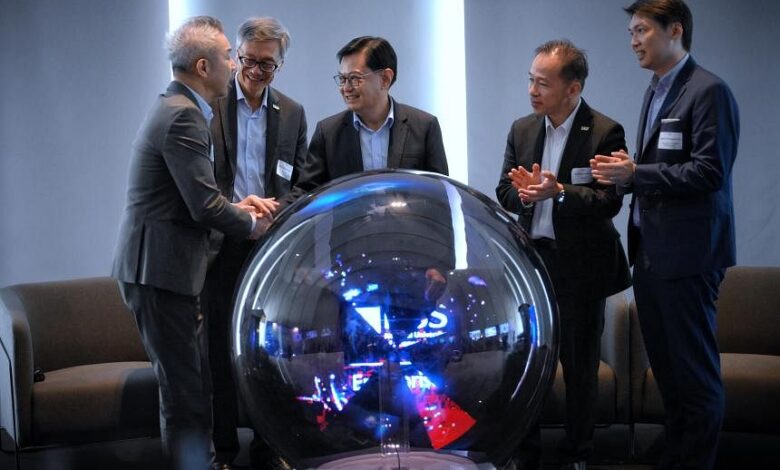NUS boosts deep tech innovation with $20m funding for start-ups and researchers

SINGAPORE – From developing a robotic guide dog to making cell-based meat, start-ups and innovation efforts in the field of deep technology will get a boost from an additional $20 million by the National University of Singapore (NUS).
This is to encourage more researchers to transform their work and discoveries into tangible solutions, as well as to spur innovation, said NUS president Tan Eng Chye on March 18 at the university’s deep tech venture showcase.
Half of the additional funding will go towards enhancing NUS’ Graduate Research Innovation Programme (Grip).
Designed to help launch start-ups stemming from university research, Grip 2.0, an enhanced programme, will award postgraduate students, alumni and researchers up to $250,000, up from $100,000 in the original programme, along with access to industry partnerships.
“We aim to encourage our researchers to accelerate translational work to realise the real-world impact of their research faster,” said Professor Tan.
The other $10 million will be channelled into a new set of Innovation Fellowship and Venture Awards, which will be given to faculty and researchers to further develop their work, such as scaling up prototypes, said Prof Tan.
The funding ranges from $80,000 to $250,000, depending on the stage of development and the developer’s ability to find practical applications for his research that can be commercialised or widely adopted.
Deputy Prime Minister Heng Swee Keat, speaking at the same event, said the commitment to deep tech and commercialisation is of high priority as part of Singapore’s Research, Innovation and Enterprise 2025 plan.
“Funding and talent put together can create a virtuous cycle that drives innovation output, deepens the ecosystem, and, in turn, draws more talent and funding in,” DPM Heng said, listing strong university ties with research talent and the patient wait for funding to support long development cycles as key elements for deep tech to thrive.
He added that since 2013, Singapore has seen 27 home-grown unicorns – or highly successful start-ups – including two deep tech ones. They are Nanofilm, which specialises in advanced materials and coating, and Biofourmis, a healthtech start-up that pairs wearable technology with its analytics software to personalise healthcare treatments.
However, Singapore remains constrained by its size and resources, and hence it is important to nurture a culture of innovation, prioritise collaborations across institutions, and be proactive in venture building.
DPM Heng said: “For a pervasive innovation culture to take root, the pathways between academia and industry must be open and inviting.”
He added that it is more than just urging professors to think about commercialisation because incentive structures, which may yield effective results, may be stressful and self-limiting.
“What we want is for our professors and researchers to develop an instinct for and feel empowered to turn their research outcomes into impactful solutions for society,” he said.




